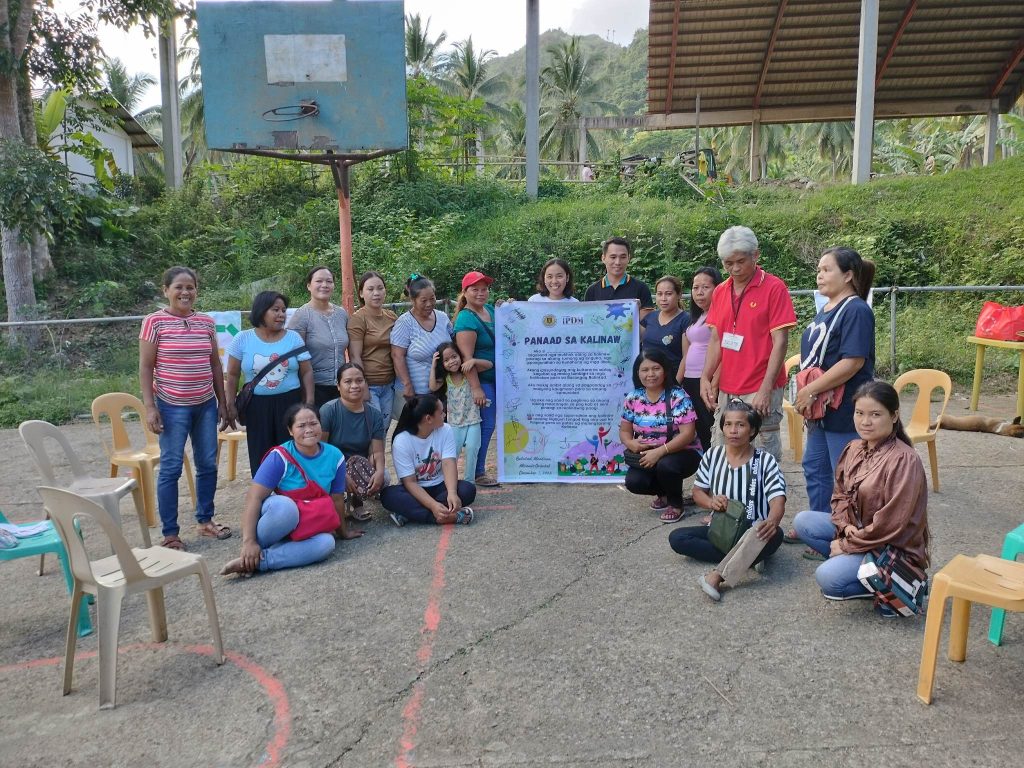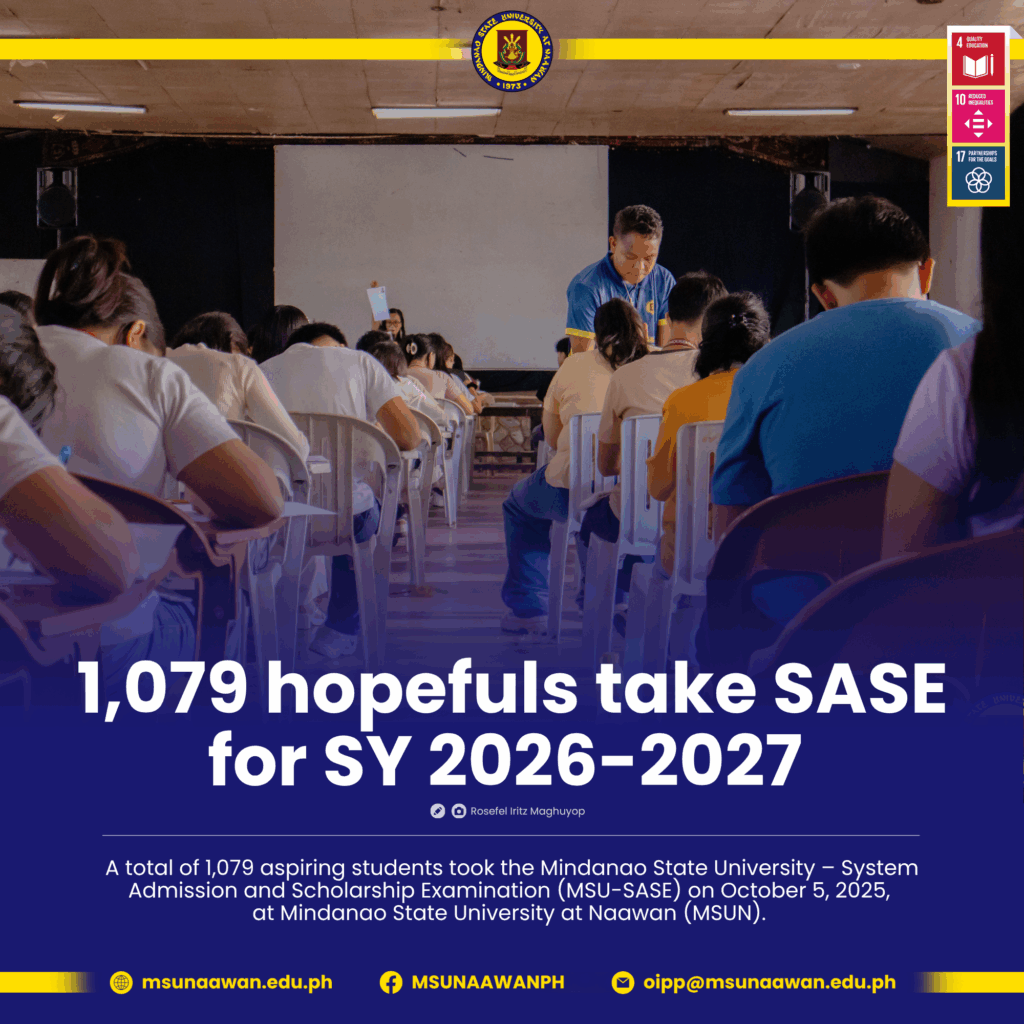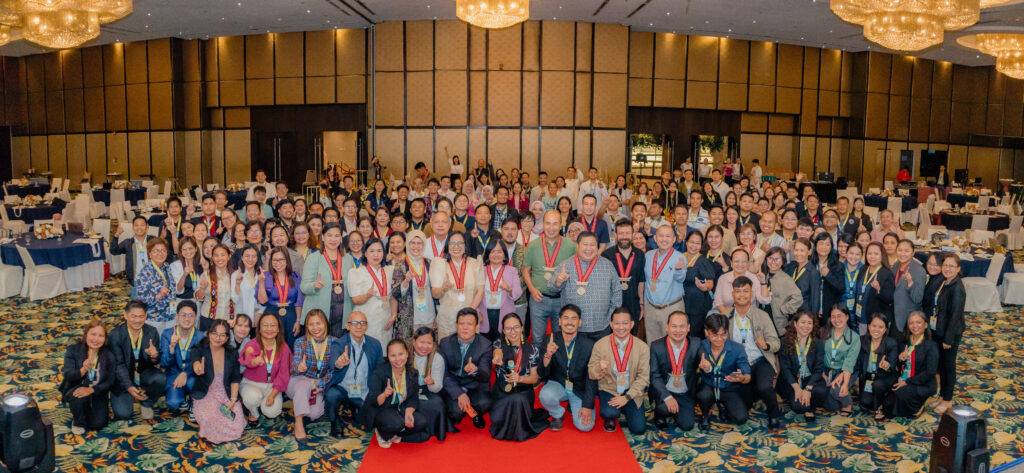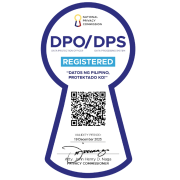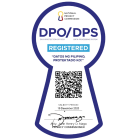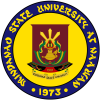MSUN Faculty-Researcher Presents Study on Coastal Fisheries at the 13th International Fisheries Symposium in Indonesia
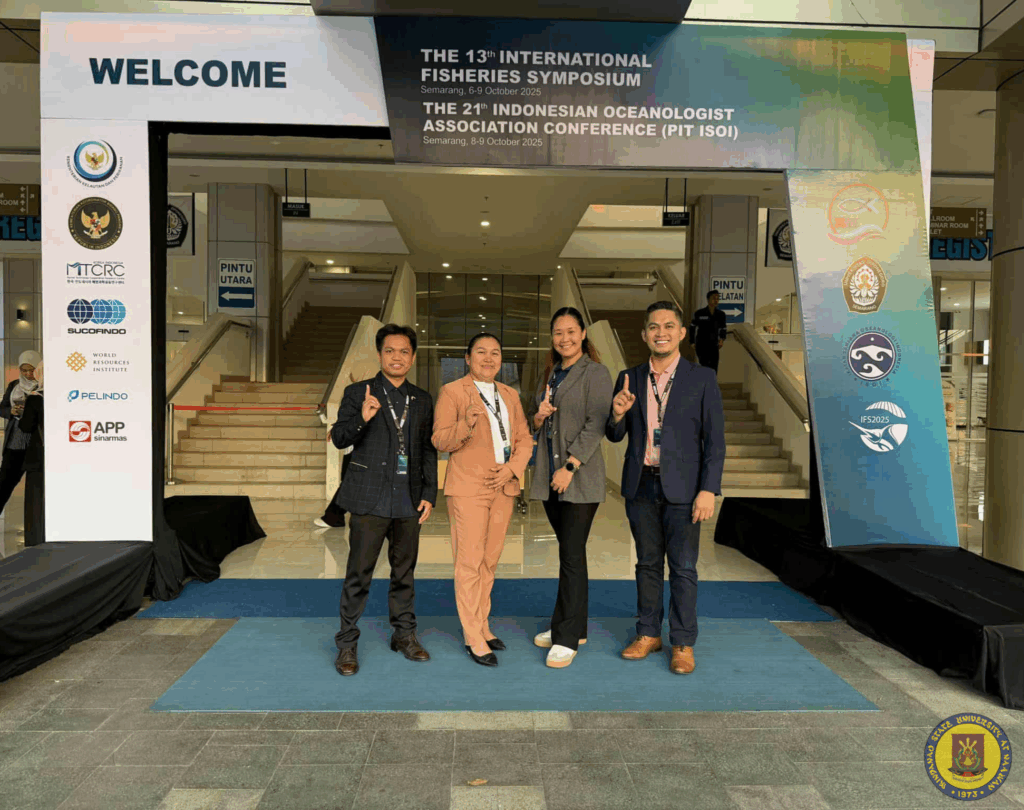
Faculty-researcher from the College of Fisheries and Marine Sciences, Ms. Raisa Marie H. Bacasnot, presented her team’s research at the 13th International Fisheries Symposium (IFS 2025) held on October 6–9, 2025, at Diponegoro University, Semarang, Indonesia.
Hosted by Universitas Diponegoro and organized by ASEAN-FEN, IFS 2025 brought together scientists, academicians, practitioners, and policymakers from across ASEAN and beyond. The symposium served as an important venue for sharing innovative research, promoting sustainable fisheries management, and strengthening regional collaboration in marine science and innovation.
Ms. Bacasnot presented the study titled “Status and Baseline Assessment of Coastal Fisheries in RT Lim, Zamboanga Sibugay, Southern Philippines.” The research provided a comprehensive assessment of the current condition and productivity of local coastal fisheries, while also highlighting the socio-economic challenges faced by fishing communities.
The team’s findings offered valuable insights into the declining fishery resources in RT Lim and underscored the need for science-based management measures and policy support. By identifying key factors influencing sustainability and local livelihoods, the study contributes to the development of adaptive management strategies, encourages community-based resource stewardship, and supports evidence-based decision-making for coastal governance.
Its implications go beyond the local context, offering useful approaches for sustainable fisheries management in other coastal areas of the Philippines and the ASEAN region.
Through its participation in global research platforms like IFS 2025, Mindanao State University at Naawan reaffirms its commitment to nurturing sustainable aquatic ecosystems, improving food security, and building stronger international collaborations. Ms. Bacasnot’s presentation embodies the dedication of MSUN researchers to advancing local science with global relevance, empowering coastal communities, promoting sustainable practices, and contributing to the shared vision of healthy and thriving oceans.

